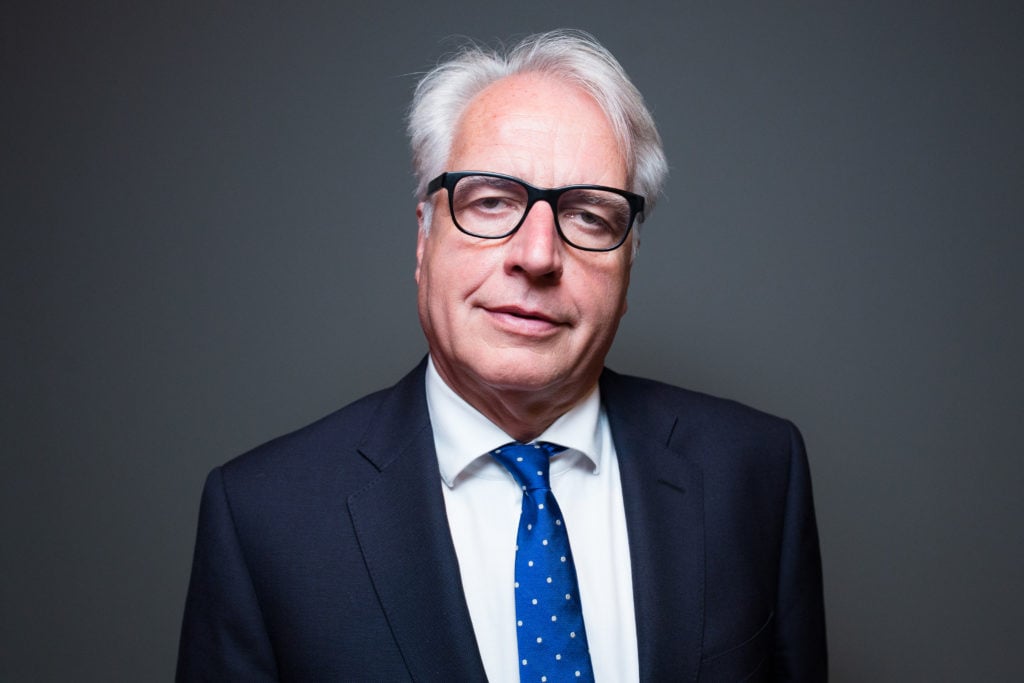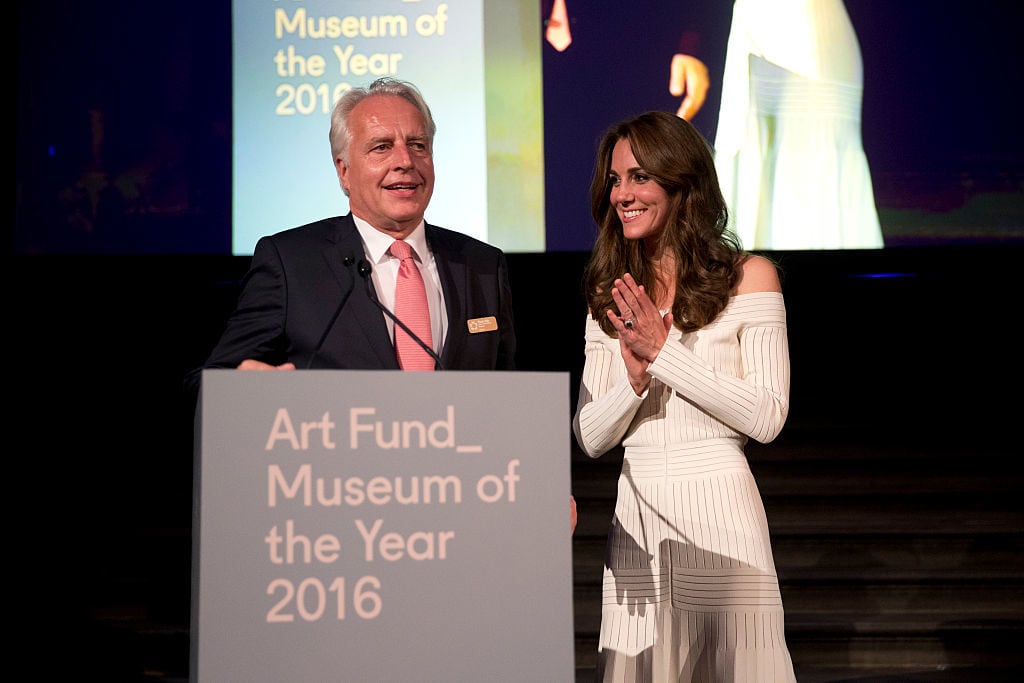People
Martin Roth, Museum Impresario Who Led London’s V&A to Great Heights, Has Died
Roth is credited with transforming the V&A into a record-breaking, award-winning institution.

Roth is credited with transforming the V&A into a record-breaking, award-winning institution.

Hili Perlson

The esteemed museum manager and former director of London’s Victoria and Albert Museum, Martin Roth, has died. According to the German press agency dpa, the 62-year-old Roth passed away in Berlin on the morning of Sunday, August 6, after a battle with a serious illness.
One of the most successful museum directors of the last decade, Roth is credited with transforming the Victoria and Albert Museum in London—which he helmed from 2011 to 2016—from a dutiful, dusty institution to a vibrant must-see destination in the British capital.
During his tenure, the museum staged blockbuster shows such as “Savage Beauty,” dedicated to the late fashion genius Alexander McQueen, and the highly popular exhibition on David Bowie, organized together with the legendary musician in 2013. In 2016, the V&A was awarded the prestigious Art Fund Museum of the Year distinction.
“Martin will be remembered as a man of prodigious energy; a Director with a global reputation both within the museum world and beyond; a committed Europhile and cultural ambassador with a philosophical turn of mind, as well as a devoted husband and father,” the museum’s chairman Nicholas Coleridge CBE, wrote in a statement released by the V&A, adding that “Martin made it his mission to raise the international profile of the Museum.”
“We will greatly miss Martin, and are profoundly grateful for his considerable contribution to the V&A.”

Martin Roth accepts the Art Fund Museum of the Year 2016 prize from the Duchess of Cambridge on behalf of the V&A. Photo Matt Dunham – Pool/Getty Images.
Born in Stuttgart in 1955, Roth had a remarkable career in his native country before going on to become the first-ever foreign director to helm the British institution. In fact, Roth has another “first” under his belt: in 1991, as the process of German reunification was still underway, Roth became the first West German curator to take up a position as museum director in former East Germany, helming Dresden’s DHMD—Germany’s earliest science museum—until 2001.
In 2002, Roth became the director general of the Dresden State Art Collections, overseeing 12 museums and galleries. During the floods that hit the state of Saxony that same year, Roth organized a mission to protect the state collection’s priceless holdings.
In addition, Roth presided over the German Museums Association from 1995 to 2003, and was a member of the German Ministry of Foreign Affairs’ Advisory Board in Berlin until relocating to London in 2011.
In September 2016, one year before the official end of his tenure at the V&A, Roth announced his resignation, claiming his decision to step down was in reaction to the Brexit vote. He returned to Germany and became an advisor to the German Foreign Ministry for Cultural Matters and president-elect of IfA, Institute for Foreign Relations (Institut für Auslandsbeziehungen).
German culture minister Monika Grütters described Roth as “one of the most striking but also strident figures” in the German and the international museum world in an official government communiqué. “Roth has always regarded his role in the field of culture also as a political intervention…. A cultural manager with clear ideas and sharp edges, he will be missed.”
An outspoken manager, Roth was one of the few in the field to defend the German government’s (and Monika Grütters’s) highly controversial cultural protection legislation before it was passed. “In Germany, one makes it too easy for dishonest or uninformed dealers, because in truth, so far nothing is regulated, anyone can sell anything,” he said in a 2015 interview.
This past May, Roth sparked controversy with a statement in the German paper Der Tagesspiegel regarding his position as the curator of the pavilion of Azerbaijan at the 57th Venice Biennale. He called Azerbaijan “a blueprint for the tolerant coexistence of people of different cultures,” a statement which he later admitted “might have been a mistake.”
In an obituary in the FAZ, which first reported his passing, Roth is remembered as a brilliant manager who expertly “reinvented” museums, connected with new audiences, and understood the importance of research departments in museums, which he considered key to an institution’s mission. He is also described as a uniquely talented fundraiser, capable of conveying his intentions for any given exhibition with a clarity and an intensity that “opened doors and pockets.”